|
restoring our biblical and constitutional foundations
|
Ethiopia Report (Part 4): On to “Dusty” Alaba
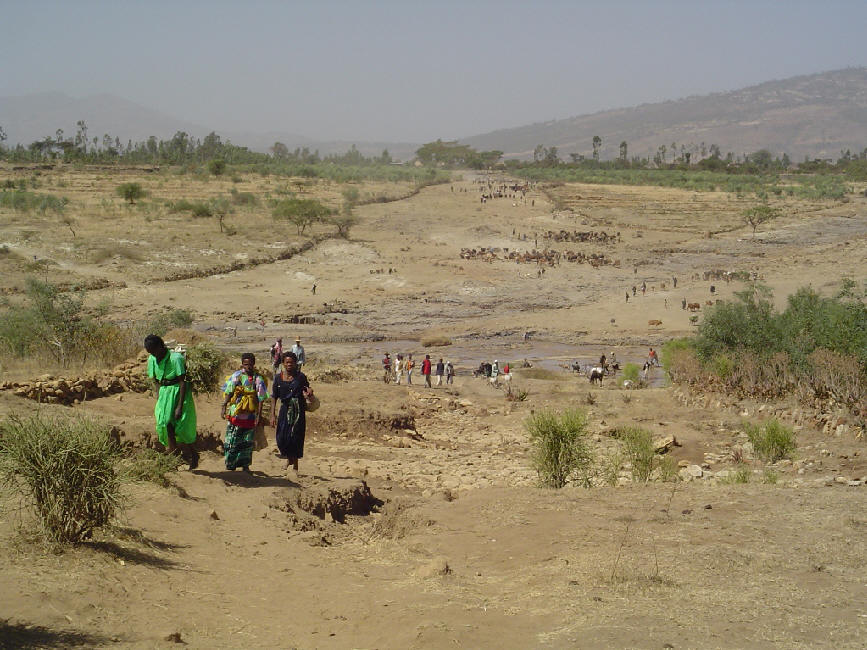
People wading across the Blatt River, coming to market in town
During the third week of our 5-week trip we traveled to the Alaba district of Ethiopia. This area is almost directly south of the capital Addis Ababa. It is a flat, dry, desert-like area that is part of the giant Rift Valley. This valley starts in the Middle East and goes to the heart of the African continent. It is known for mosquitoes, malaria, and supposed evolutionary finds. Blowing dust is the trademark of Alaba. Dust is everywhere, and dust whirlwinds are common.
Ababa goes way back in my family history. It was the half-way point in our journey back to civilization. When we were returning to the capital from our “down-country” mission station, we always stayed at the great “Alaba Inn.” This region of Ethiopia has never been a hospitable place for mission work; for decades it has been almost totally in the bondage of Islam. In fact, at the start of our war with Iraq it was not safe for white-faced foreigners to go to the area. We were told that the men in the region began growing beards in order to aid in hiding Osama bin Laden. The Muslim leaders here have direct links to the countries of the Middle East. But now our Lord is reclaiming this land for His own!
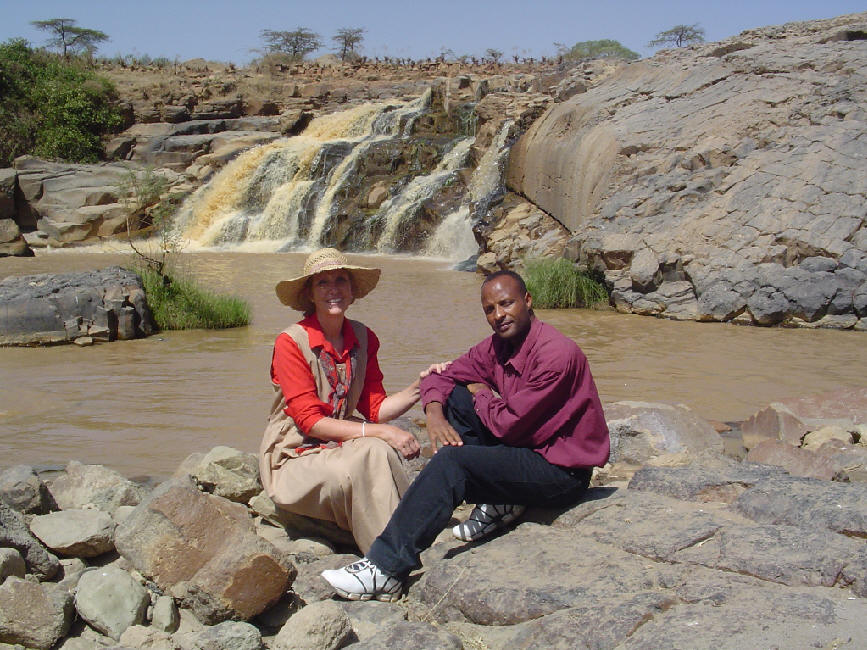
BeckyLynn and our son David by the river
As a child, I developed a fear and dread of Alaba – it was so harsh in land and people. Our recent love for the area has come from our sons. We have two Ethiopian sons from this area, and you should hear them talk of their homeland! All Ethiopians change when they are in their home territory; tribal connections are very strong. Each tribe has its own dress, language, food, and lifestyle customs. Over and over we see Ethiopians “blossom” when they get in their home turf. Somehow, David and Nigussie blossom at the mere mention of the name “Alaba”!
This area is labeled “unreached” by the Ethiopian church, so churches from all over Ethiopia send evangelists to help spread the Gospel. Our time here was divided between the “town” church and the “rural” church. There are actually 4 town churches, and each one has its story of past persecution. The theme is the same: some Muslim leader decided to exterminate the Christian population through forced removal by the government. Usually the town leaders were offered large sums of money (which usually came from Saudi Arabia) to take away the homes of the Christians and force them to move somewhere else in Ethiopia. Then the Christians would plead with God for deliverance, and God would do some miraculous work, whereby they were not only saved, but also the Kingdom was expanded.
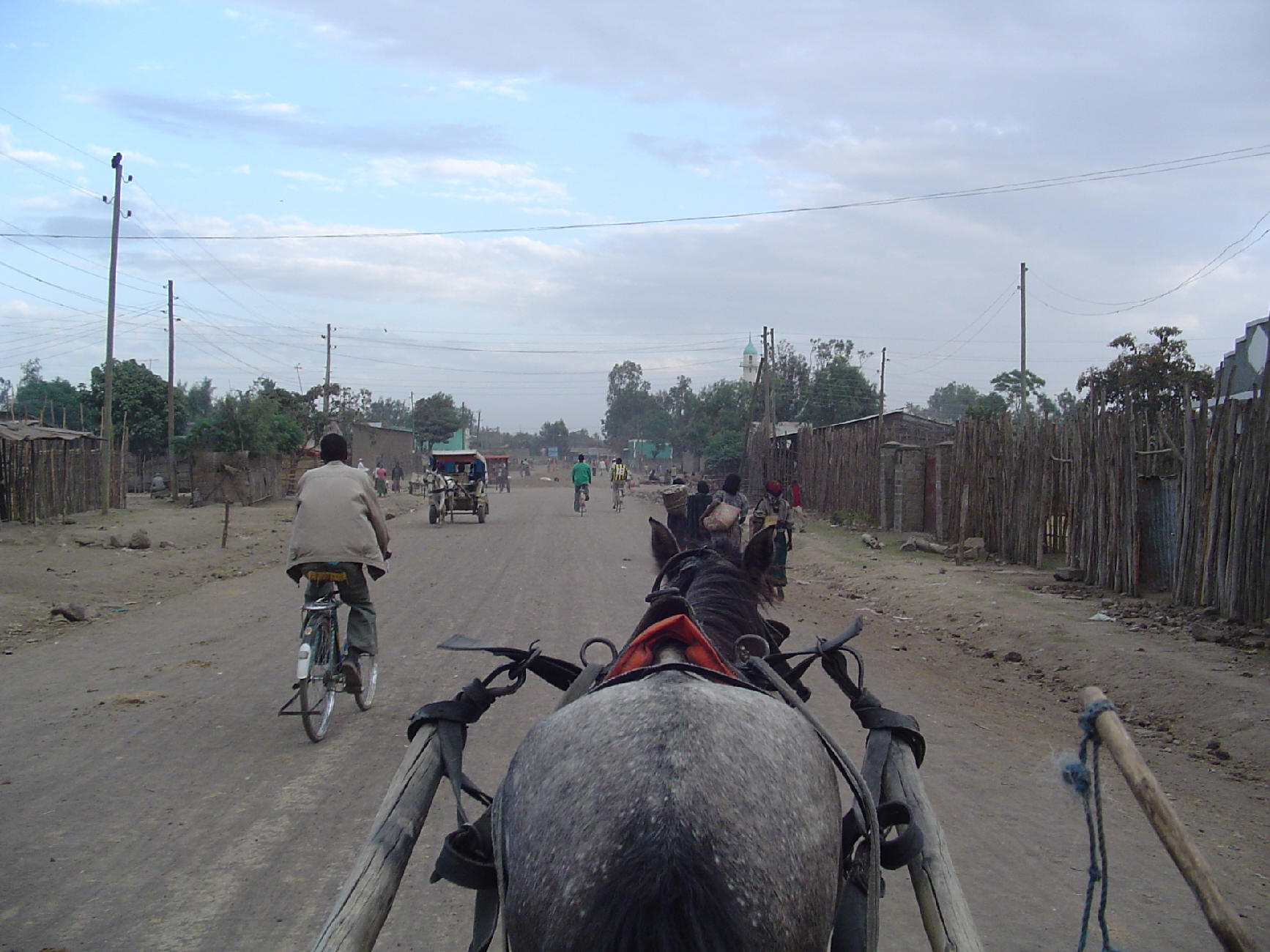
Alaba town street...dust, dust, dust!
Here’s one story. About 4-5 years ago, a man came from Saudi Arabia and built a nice, large home in Alaba town. The day that he held an Open House for all his friends was the same day that the church next door held a conference. The sound of singing in the church floated over to his house, and he became very angry. “This is a Muslim town!” he told the town leaders. “What are Christians doing here?” He told the leaders, “I will bring lots of money into this town and make it very beautiful if you will remove all the Christians.” He then left the town to wait for the Christians to be removed. However, en route back to Addis, his car overturned and he was severely injured in the accident. As is so often the case in third world countries, he drew a direct line of cause-and-effect between his threat against the Christians and his car accident. He quickly retracted his offer to the leaders, sold his home, and returned to Saudi Arabia.
Similar stories have been repeated over and over in the past 10 years, so that now the Muslim leaders have a “hands off” attitude toward the Christians. They have a measure of fear that something bad will happen to them if they hurt the Christians. (Unfortunately, this is not the case in the rural churches, as we will report next time.) So, today the town churches have a good measure of religious freedom. Unfortunately, that freedom has given rise to a relaxed attitude toward commitment to godly purity of doctrine and practice. A good measure of our teaching was warning them against the dark side of easy living (reduced charity, materialism, self-centeredness, pride, etc.). This attitude is especially evident in the young people who want to make a mark, not so much for spiritual purity as for social and material gain.
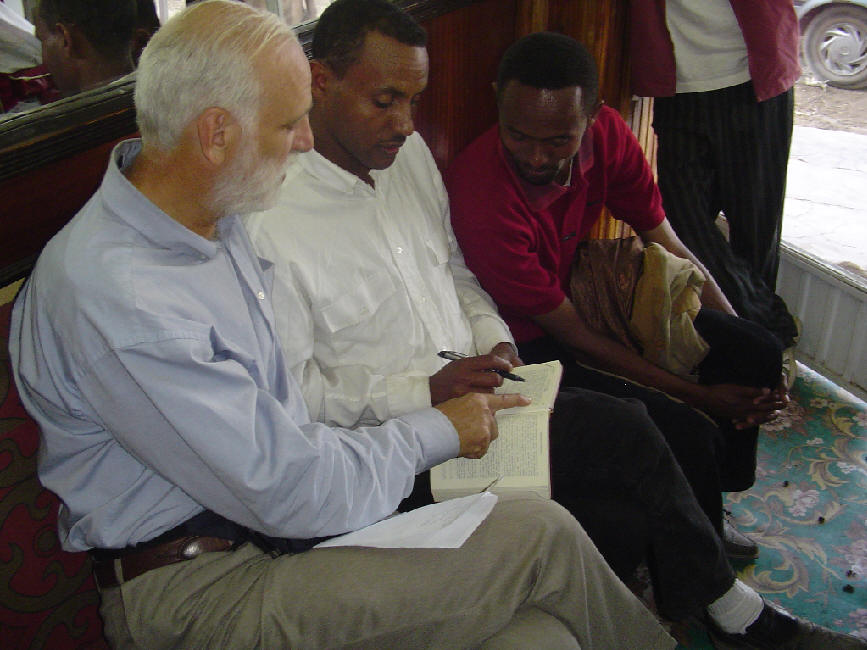
Discussing the Greek New Testament with future leaders
Our primary work in the town church was teaching. This teaching was done in the form of large, structured meetings to leaders, congregations, teachers, and women. It was also done in small informal groups to the young people. And it was done through one-on-one mentoring. We encouraged the believers to be diligent in good works to those less fortunate, particularly the poor in the countryside around them and the men in the prison outside the town. We encouraged the young people to give attention to personal purity in dress and actions. We taught some on family relationships; the need in this area of life is tremendous! Dave challenged the leaders to cling to the Scriptures themselves for feeding the flock, and to avoid the Christian “pre-packaged programs” that are so popular in the more developed areas. The leaders have begun a translation of the Scriptures into the Alaba tribal tongue, so Dave was able to give assistance in that work. Also, as in Burji, we distributed eyeglasses, Bibles, flannelgraph, laptops, and the Jesus Film. So the work continued....
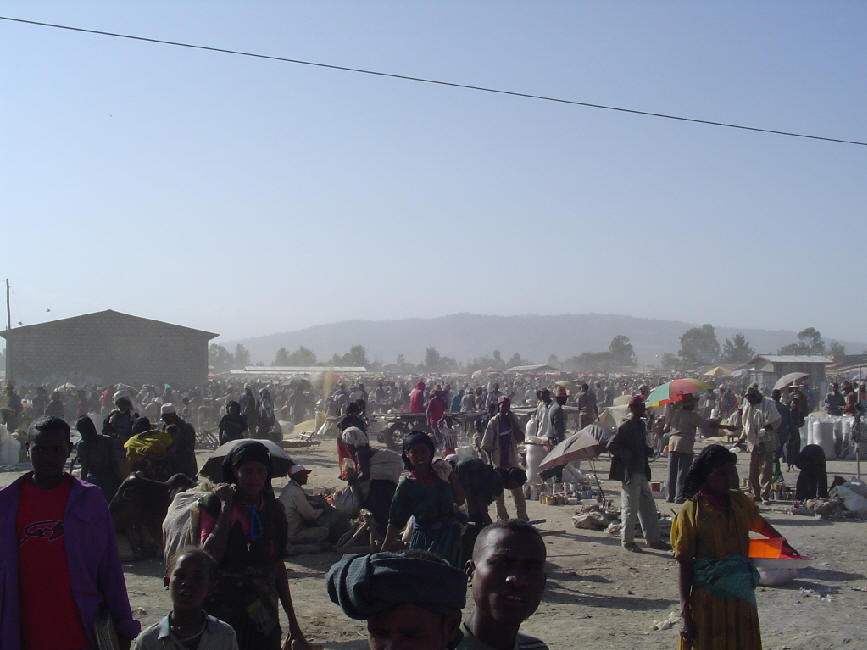
Alaba Town market every Thursday
Next Report: The Life-and-Death Struggle of the Rural Alaba Church
February 5, 2006